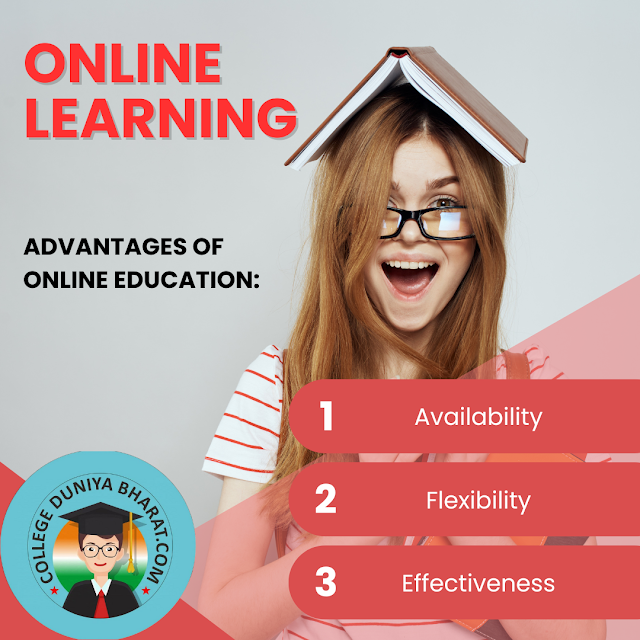Exploring Flexible Learning Options: Online vs. Night Classes
In today’s fast-paced world, education has become more accessible than ever. For working professionals, parents, or anyone with a busy schedule, flexible learning options such as online classes and night classes have emerged as popular solutions. Both offer unique benefits and challenges, making it essential to understand which option best suits your needs. In this blog, we’ll explore the pros and cons of online and night classes, helping you make an informed decision.
The Rise of Flexible Learning
Flexible learning has transformed education by breaking traditional barriers like rigid schedules and geographical limitations. According to recent studies, the global online education market is expected to grow significantly, reflecting its popularity. Similarly, night classes remain a reliable option for individuals who prefer face-to-face interaction but need to balance other commitments during the day.
What Are Online Classes?
Online classes are virtual learning sessions conducted over the internet. They can be synchronous (live sessions) or asynchronous (pre-recorded lessons), allowing students to learn at their own pace. Platforms like Coursera, Udemy, and edX have made online learning accessible and affordable for millions worldwide.
Advantages of Online Classes
-
Flexibility:
- Learn anytime, anywhere.
- Ideal for people with unpredictable schedules.
-
Wide Range of Courses:
- Access to diverse subjects, from coding to cooking.
- Learn from experts and institutions worldwide.
-
Cost-Effective:
- Often more affordable than traditional education.
- Saves money on commuting and accommodation.
-
Self-Paced Learning:
- Perfect for those who prefer learning at their own speed.
- Revisit lessons as needed.
Challenges of Online Classes
-
Lack of Personal Interaction:
- Limited face-to-face interaction with instructors and peers.
-
Self-Discipline Required:
- Requires strong time management skills.
-
Technical Issues:
- Dependence on a stable internet connection and technology.
-
Limited Hands-On Experience:
- Practical or lab-based subjects may be harder to grasp.
What Are Night Classes?
Night classes, also known as evening classes, are traditional in-person courses conducted after regular working hours. These classes are often offered by universities, community colleges, and specialized training centers.
Advantages of Night Classes
-
Face-to-Face Interaction:
- Engage directly with instructors and classmates.
- Immediate feedback and clarification of doubts.
-
Structured Learning Environment:
- Fixed schedules help maintain consistency.
- Easier for students who thrive in a disciplined setting.
-
Networking Opportunities:
- Build connections with peers and professionals.
- Enhance interpersonal skills through group activities.
-
Practical Learning:
- Ideal for hands-on courses like laboratory sciences or art.
Challenges of Night Classes
-
Time Constraints:
- Balancing work, family, and evening classes can be stressful.
-
Limited Flexibility:
- Fixed schedules may not suit everyone.
-
Commuting Issues:
- Traveling to and from class, especially at night, can be inconvenient or unsafe.
-
Higher Costs:
- Tuition and additional expenses like transportation and materials can add up.
Comparing Online and Night Classes
1. Convenience:
- Online Classes: Offer unmatched convenience. You can learn from the comfort of your home or even while traveling.
- Night Classes: Require physical attendance, which may be challenging for those with tight schedules.
2. Learning Style:
- Online Classes: Best for independent learners who are tech-savvy.
- Night Classes: Suitable for those who benefit from structured, interactive environments.
3. Cost:
- Online Classes: Generally more affordable, with many free or low-cost options available.
- Night Classes: Often involve higher tuition fees and additional costs like commuting.
4. Interaction:
- Online Classes: Limited interaction; however, discussion forums and virtual meetings can bridge the gap.
- Night Classes: Rich interpersonal engagement, making it ideal for collaborative learning.
5. Accessibility:
- Online Classes: Accessible to anyone with an internet connection.
- Night Classes: Limited by geographical location and travel constraints.
Factors to Consider When Choosing
1. Your Goals:
- If you aim to acquire specific skills quickly, online classes may be more suitable.
- For formal qualifications or networking opportunities, night classes might be better.
2. Your Schedule:
- Choose online classes if you have an unpredictable routine.
- Opt for night classes if you can commit to a fixed schedule.
3. Learning Style:
- Self-motivated learners may thrive in online settings.
- If you prefer guided instruction, consider night classes.
4. Budget:
- Online classes often cost less and eliminate commuting expenses.
- Night classes may involve additional costs but offer tangible benefits like hands-on learning.
5. Course Requirements:
- Practical or lab-based courses are better suited for night classes.
- Theoretical or skill-based courses can be effectively taught online.
Making the Right Choice
The decision between online and night classes ultimately depends on your individual needs and circumstances. Here are some tips to help you decide:
-
Assess Your Priorities:
- Determine whether flexibility, cost, or interaction is most important to you.
-
Research Course Options:
- Compare the curriculum, faculty, and reviews of online and night classes.
-
Try a Trial:
- Many online platforms offer free trials or sample lessons. Attend a demo class for night courses if possible.
-
Seek Guidance:
- Consult with mentors, colleagues, or academic advisors to make an informed choice.
Conclusion
Both online and night classes have their strengths and limitations. Online classes are ideal for those seeking flexibility, affordability, and a self-paced learning experience. On the other hand, night classes provide structure, personal interaction, and hands-on learning opportunities.
By understanding your goals, schedule, and learning preferences, you can choose the option that aligns best with your lifestyle. Whichever path you take, remember that education is an investment in your future. Embrace the journey, stay committed, and reap the rewards of lifelong learning.
"Thanks for visiting and exploring the transformative world of innovative education!"

